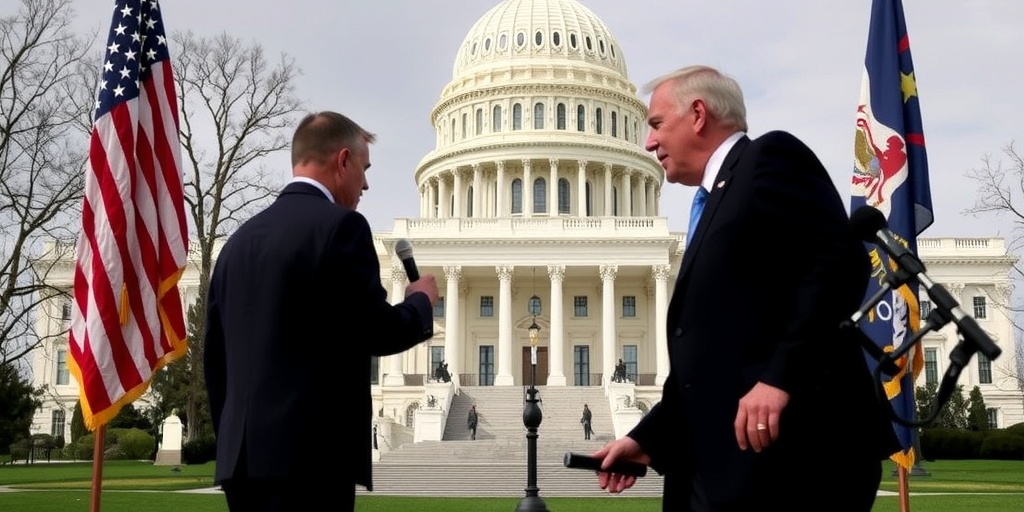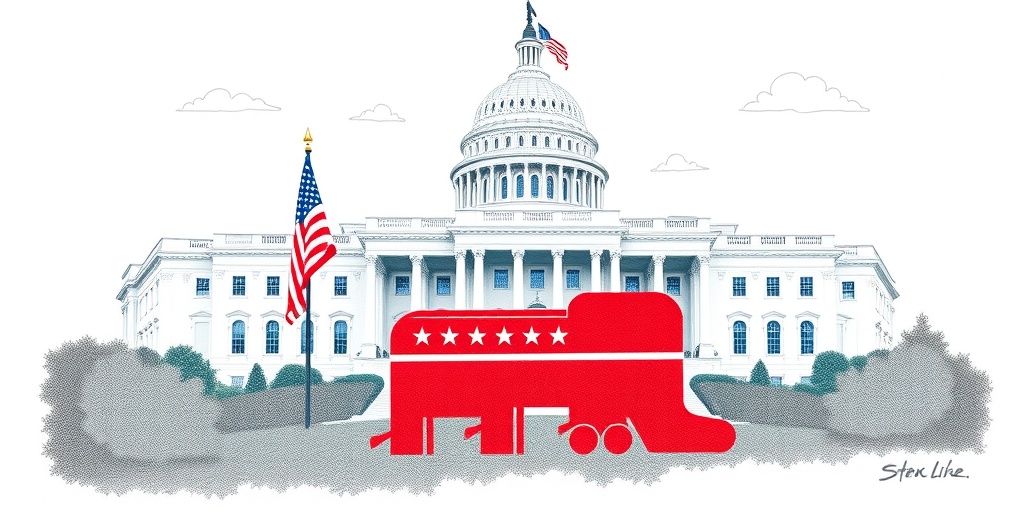Now Reading: Republicans Aim to Bypass Senate Rules for Additional Tax Cuts
-
01
Republicans Aim to Bypass Senate Rules for Additional Tax Cuts
Republicans Aim to Bypass Senate Rules for Additional Tax Cuts

Senate Republicans Attempt to Bypass Parliamentarian in Budget Reconciliation Process
For years, the role of the Senate parliamentarian has been crucial in shaping budget and tax legislation in Congress. This unelected official serves as the guardian of the Senate’s complex rules and has the authority to determine whether significant legislation can be fast-tracked through a process known as reconciliation, which allows bills to pass with a simple majority, thus circumventing filibusters. However, Senate Republicans are now looking to circumvent this essential process in their efforts to advance a major budgetary and tax agenda, reflective of President Trump’s policies.
In their quest to pass a sweeping budget and tax bill that encompasses President Trump’s goal of delivering what he referred to as a “one big beautiful bill,” Senate Republicans are pushing the boundaries of established congressional norms. They are attempting to avoid a formal ruling from the parliamentarian, Elizabeth MacDonough, regarding the fiscal repercussions of extending the tax cuts initially enacted in 2017, which many have labeled a budgetary “gimmick.” By sidestepping the parliamentarian’s authority, Republicans aim to assert that extending these tax cuts will incur no additional costs, thereby allowing them to incorporate extensive tax reductions without significantly impacting the overall deficit.
Amid increasing scrutiny on the potential outcomes of the legislation, particularly concerning its financial implications, Senate Republicans are crafting a strategy that challenges the traditional reconciliation process. Notably, they asserted that Senator Lindsey Graham, as chair of the Senate Budget Committee, has the unilateral authority to define the financial implications of the legislation, drawing upon a 1974 budget law for justification. This approach marks a significant departure from the established practices regarding budgetary evaluations and could effectively alter the landscape of the reconciliation process within the Senate.
On a recent Wednesday, Republicans unveiled a new budget resolution aimed at facilitating a vote on the legislation within the week. Senator John Thune, the Senate’s majority leader, underscored the importance of moving forward with this legislation to propel their collective Republican agenda. However, this strategy amounts to a radical reinterpretation of the reconciliation process, positioning a Senate chairman’s determination above the traditional role of the parliamentarian—the spectral figure traditionally relied upon to arbitrate fiscal disputes and maintain the integrity of the budgetary process.
Typically, assessments of fiscal policy changes are conducted against an established baseline known as the “current law base line,” which considers the costs of previously enacted legislation. However, the Senate Republicans are proposing to deviate from this standard, suggesting that future policy changes be measured against existing policies, including those with temporary effects. Senator Graham emphasized this shift by stating that "current policy will be the budget base line regarding taxation," which would effectively render the Trump tax cuts permanent while removing the constraints imposed by previous legislation.
This line of reasoning fundamentally challenges conventional budgetary practices and may have severe implications for the future of fiscal legislation within the Senate. Nonpartisan budget analysts have projected that extending the existing tax cuts would incur approximately $4 trillion in costs over the next decade. By classifying these tax cuts as cost-free, Republicans could navigate around crucial limitations imposed by reconciliation, which ordinarily necessitate offsets to prevent long-term deficits.
The newly proposed budget resolution also contemplates the introduction of $1.5 trillion in new tax cuts alongside a $5 trillion increase in the debt limit. In a notable attempt to ease constraints on the budget, different cut requirements have been set for House and Senate committees, signaling a divergence in fiscal strategy across chambers.
Despite the boldness of their approach, Senate Republicans’ decision to circumvent the parliamentarian risks igniting significant tensions within Congress. Lawmakers on both sides anticipate a robust confrontation when this issue reaches the Senate floor. Many Democrats are expected to voice their objections, arguing that disregarding the authority of the parliamentarian constitutes an erosion of procedural integrity within the Senate.
Experts in congressional procedure, like Molly E. Reynolds from the Brookings Institution, warn that such actions could represent a seismic shift in Senate governance. Ignoring the parliamentarian’s counsel would set a dangerous precedent, signaling a potential decline in rules-based legislating and strengthening the majority party’s capacity to maneuver around established protocols unchallenged.
As the Senate gears up for what could be a pivotal week, the repercussions of the Republicans’ strategy could redefine the future of fiscal policymaking in the U.S. The ongoing tension surrounding these developments highlights the critical balancing act lawmakers must navigate as they engage with deeply entrenched procedural norms and partisan interests, all while seeking to advance their respective agendas in a fractious political environment.
Stay Informed With the Latest & Most Important News
Previous Post
Next Post
-
 01New technology breakthrough has everyone talking right now
01New technology breakthrough has everyone talking right now -
 02Unbelievable life hack everyone needs to try today
02Unbelievable life hack everyone needs to try today -
 03Fascinating discovery found buried deep beneath the ocean
03Fascinating discovery found buried deep beneath the ocean -
 04Man invents genius device that solves everyday problems
04Man invents genius device that solves everyday problems -
 05Shocking discovery that changes what we know forever
05Shocking discovery that changes what we know forever -
 06Internet goes wild over celebrity’s unexpected fashion choice
06Internet goes wild over celebrity’s unexpected fashion choice -
 07Rare animal sighting stuns scientists and wildlife lovers
07Rare animal sighting stuns scientists and wildlife lovers





















